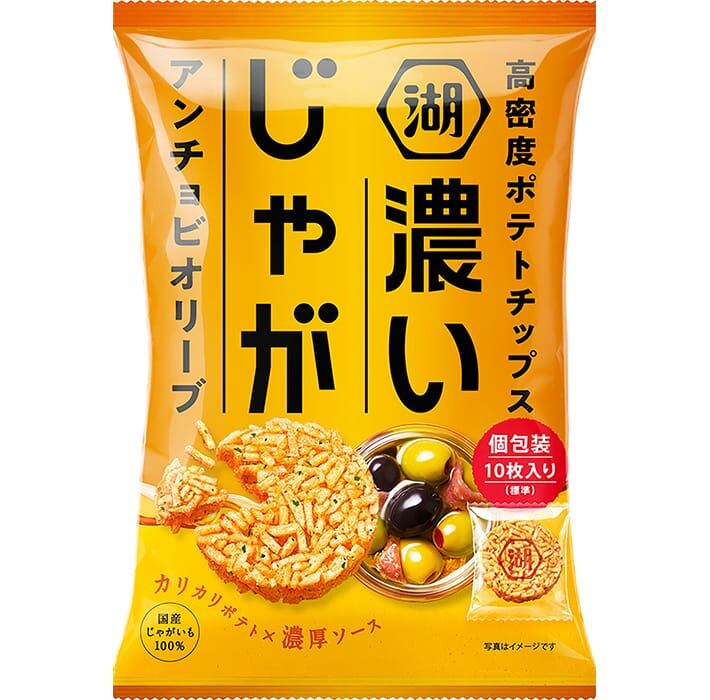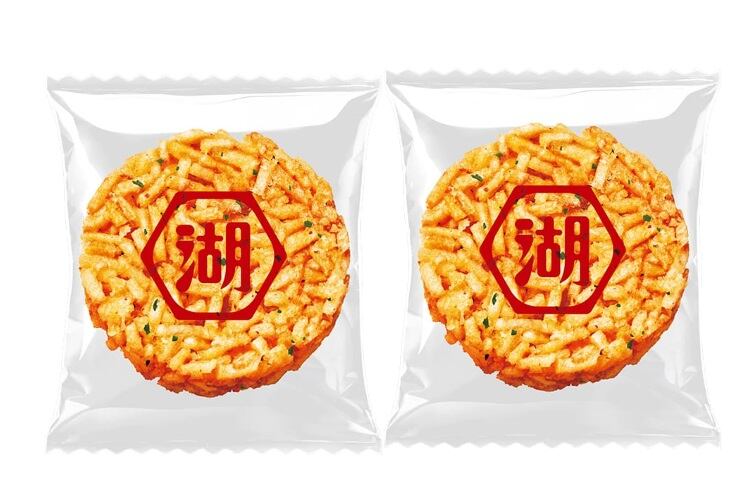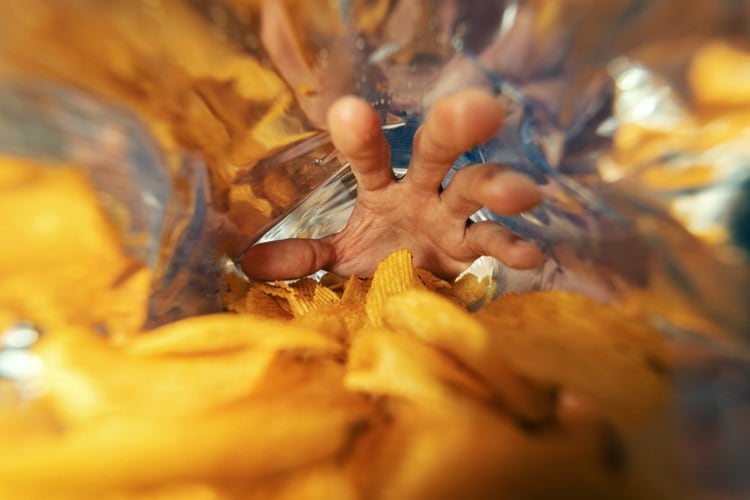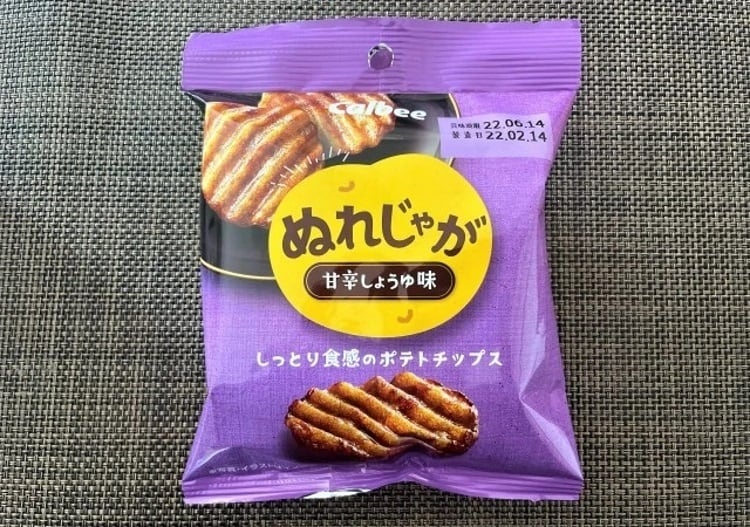Tokyo-based Koikeya Co has rolled out limited edition Koijaga chips in the Kanto region of Honshu, the largest island of Japan, on Monday (3 October), so consumer acceptance is still to be monitored.
However, the producer stands fast behind its new concept, noting it has delivered “a new-era snack that creates a new food scene … reflecting the needs of our consumers today.”
There are a number of features that makes these premium round chips stand out from others.
Firstly, they are extremely dense – around 5g per chip – made up of a multi-layered texture created by overlapping tiny potato batons, which the producer believes ‘makes for a satisfyingly crunch’.
The flavour is a major pop, too, packed with a ‘rich umami punch’ of anchovies and ‘luxurious’ olives that “gradually permeates, making it a high-density piece with a double texture and taste”. The chips are sprinkled with parsley and red bell pepper flakes for ‘a vibrant look’.
Designed for serious snackers

While the idea of individually wrapping each potato chip in plastic will no doubt cause consternation among eco-conscious snackers, it should be noted there are only 10 potato chips per bag, and several reasonings behind the concept.
According to Koikeya, there has been a sea-change in Japanese eating habits.
Young people, in particular, are moving away from the traditional three meals a day and the snackification movement is on the increase. This is blurring the boundary between staple meals and snacks, opening an opportunity for a more nutrient dense and filling potato chip.
The pandemic had a major impact on consumer behaviour, too, with Japanese shoppers becoming a lot more considered about food safety. In fact, a survey conducted by Koikeya found there is an increased demand for highly hygienic individual packaging.
With health in sharp focus, there is the lean towards individually-portioned snacks and snackers are not obliged to eat the whole bag in one sitting. It also means they’ll stay fresh for longer.
And finally, it’s convenient for sharing with friends and family, or for snacking at work (holding the chips by their wrappers is not only hygienic but keep fingers clean).
Koijaga Anchovy and Olive potato chips are rolling out in selected outlets in Tokyo, Ibaraki, Tochigi, Gunma, Saitama, Chiba and Kanagawa prefectures, along with Koikeya’s online store.
Koikeya is the maker behind a range of pioneering snacks, like the once-a-year offering made with Imakane Otokosaku potatoes from Hokkaido; and long-life canned snack (the specially designed cans completely blocks out any light, water and oxygen, meaning the snacks stay fresh for five years – ideal to keep for emergencies), among others.





